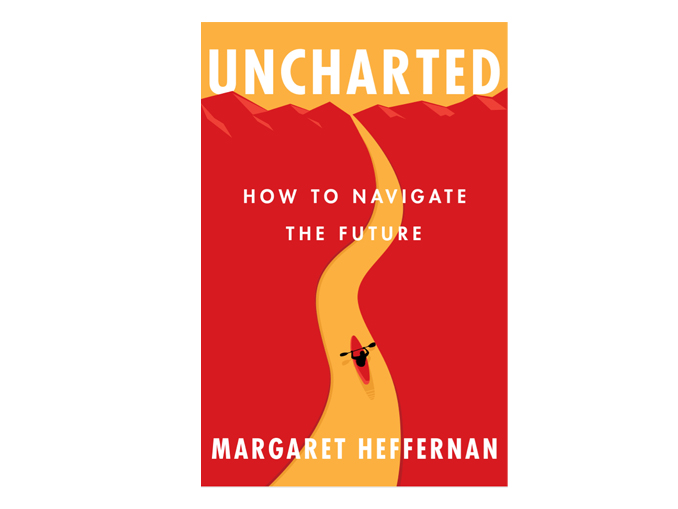Uncharted: How to Navigate the Future by Margaret Heffernan, Avid Reader Press, 2020
Margaret Heffernan’s Uncharted: How to Navigate the Future is an original and beautifully written look into how the events that have the most profound effect on humanity cannot be predicted.
Margaret Heffernan was born in Texas but has spent most of her life in the U.K. She is a TED speaker and has had many successful careers that include thirteen years as a producer of documentaries for the BBC and as a serial entrepreneur and CEO of several tech companies in the United States. She is currently a professor at the University of Bath. Margaret has written four internationally acclaimed books on business and how to live a meaningful life that meets the challenges of our time.
According to Heffernan, modern society operates under a false belief that you can predict the future if you have complete data and a good model for how a complex system works. But Heffernan points out that by trying to simplify complexity, we miss seeing all the forces at work that produce a particular result. This misdirection is amplified by relying on data that are typically incomplete, full of error and bias.
Heffernan explores how this folly plays out in many areas such as financial forecasting and DNA profiling, which she describes as a “chemical horoscope full of potential and possibilities but little certainty.” The genes that determine something as simple as hair color are incredibly complex. Even if science were at the point to confidently create designer babies, how do we know which traits will matter in the future?
Our technology is advanced but incomplete and suffers from the same prediction compulsion. We have become reliant on invisible systems that we do not understand. As a result of outsourcing major areas of our lives to apps, we have lost human skills, such as the ability to direct our attention, form memories, read a paper map, deal with ambiguity, and deal with people who are different from us. The way we are profiled by technology and algorithms impacts our ability to get jobs or loans or gain access to other opportunities. Apps that show us how to raise our children diminish our ability to trust our own judgment. The algorithms are invisible—we do not know how they work or the value system that is embedded in them. But one thing is certain—they are designed to serve the interests of their creators and not the average person.
Rather than closing our minds, predictions should stimulate fresh thinking and be used to “broaden and navigate our conceptual and imaginative horizons.” Heffernan shows how we can reclaim our power as individuals and collectively as a group. For example, the Coalition for Epidemic Preparedness Innovations (CEPI) has developed a four-pronged approach to defending against future epidemics. First, realize that epidemics come without warning. They move fast because of international travel and can spread across the globe within sixty days. Since the 1970s, new pathogens appear at the rate of one or more each year and no two epidemics are alike. The CEPI framework considers the messy and unpredictable forces that play into a pandemic such as politics, culture, and individual choice. By using the framework, epidemiologists can develop a more effective response.
Huge problems cannot be solved by expertise alone. Scenario planning exercises help stakeholders explore the forces at work when dealing with a complex system. As Heffernan says, “Scenarios illuminate the contingencies, contradictions, and trade-offs of the real world, where no one interest or perspective is in control. That’s why they produce conflict but also epiphanies.” When running this type of experiment, it is important to recruit a diverse pool of participants.
Work needs to be recast from hierarchical command-and-control structures into egalitarian “Cathedral Projects” where each person has a defined role and contributes to their full ability. Cathedral Projects, such as CERN and the building of the Sagrada Familia in Barcelona, are based on the pursuit of knowledge, powered by the energy and commitment of participants, and last beyond a single lifetime.
From beginning to end, this is a wonderful and timely book that eloquently describes the challenges we face in our time and the skills we need to develop to thrive in the future.


Be the first to comment